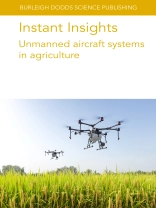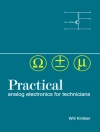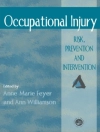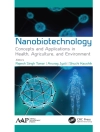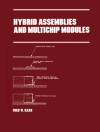- Considers the use of unmanned aircraft systems (UASs) as a means of measuring key plant traits, including canopy cover
- Discusses the advantages and limitations of using unmanned aerial vehicle remote sensing platforms in precision agriculture
- Reviews key elements of UASs, including platforms, sensors, flight planning and imagery acquisition
Jadual kandungan
- Chapter 1 – The use of unmanned aerial systems (UASs) in precision agriculture: Chunhua Zhang, Algoma University, Canada; and John M. Kovacs and Dan Walters, Nipissing University, Canada;
- 1 Introduction
- 2 Platforms and sensors
- 3 Flight planning and imagery acquisition
- 4 Image processing: stitching and ortho-rectification
- 5 UAS imagery applications
- 6 Image analysis
- 7 Case study
- 8 Future trends and conclusion
- 9 Acknowledgements
- 10 Where to look for further information
- 11 References
Chapter taken from: Stafford, J. (ed.), Precision agriculture for sustainability, Burleigh Dodds Science Publishing, Cambridge, UK, 2019, (ISBN: 978 1 78676 204 7; www.bdspublishing.com)
- Chapter 2 – Advances in high-throughput crop phenotyping using unmanned aerial vehicles (UAVs): Helge Aasen, Institute of Agricultural Sciences, ETH Zurich and Remote Sensing Team, Division of Agroecology and Environment, Agroscope, Switzerland; and Lukas Roth, Institute of Agricultural Sciences, ETH Zurich, Switzerland;
- 1 Introduction
- 2 Remote sensing tools: unmanned aerial vehicles and flight protocols
- 3 Major plant traits that can be extracted using unmanned aerial vehicle remote sensing
- 4 Conclusion and future trends
- 5 Authors’ contributions
- 6 Acknowledgements
- 7 References
Chapter taken from: Walter, A. (ed.), Advances in plant phenotyping for sustainable crop production, Burleigh Dodds Science Publishing, Cambridge, UK, 2022, (ISBN: 978 1 78676 856 8; www.bdspublishing.com)
- Chapter 3 – Advances in agricultural unmanned aerial vehicles (UAVs): Tarin Paz-Kagan, Ben Gurion University of the Negev, Israel;
- 1 Introduction
- 2 Unmanned aerial vehicle remote sensing sensors
- 3 Platforms for precision agriculture
- 4 Flight planning and pre-processing
- 5 Application in precision agriculture
- 6 Conclusion and future trends
- 7 Where to look for further information
- 8 References
Chapter taken from: van Henten, E. and Edan, Y. (ed.), Advances in agri-food robotics, Burleigh Dodds Science Publishing, Cambridge, UK, 2024, (ISBN: 978 1 80146 277 8; www.bdspublishing.com)
- Chapter 4 – Advances in remote/aerial sensing of crop water status: Wenxuan Guo, Texas Tech University and Texas A&M Agri Life Research, USA; and Haibin Gu, Bishnu Ghimire and Oluwatola Adedeji, Texas Tech University, USA;
- 1 Introduction
- 2 Quantification of plant water status
- 3 Electromagnetic radiation and interaction with matter
- 4 Optical remote sensing of plant water status
- 5 Remote sensing of plant water status using thermal infrared
- 6 Microwave remote sensing of plant water status
- 7 Conclusion and future trends in research
- 8 Where to look for further information
- 9 References
Chapter taken from: Lobsey, C. and Biswas, A. (ed.), Advances in sensor technology for sustainable crop production, Burleigh Dodds Science Publishing, Cambridge, UK, 2023, (ISBN: 978 1 78676 977 0; www.bdspublishing.com)
